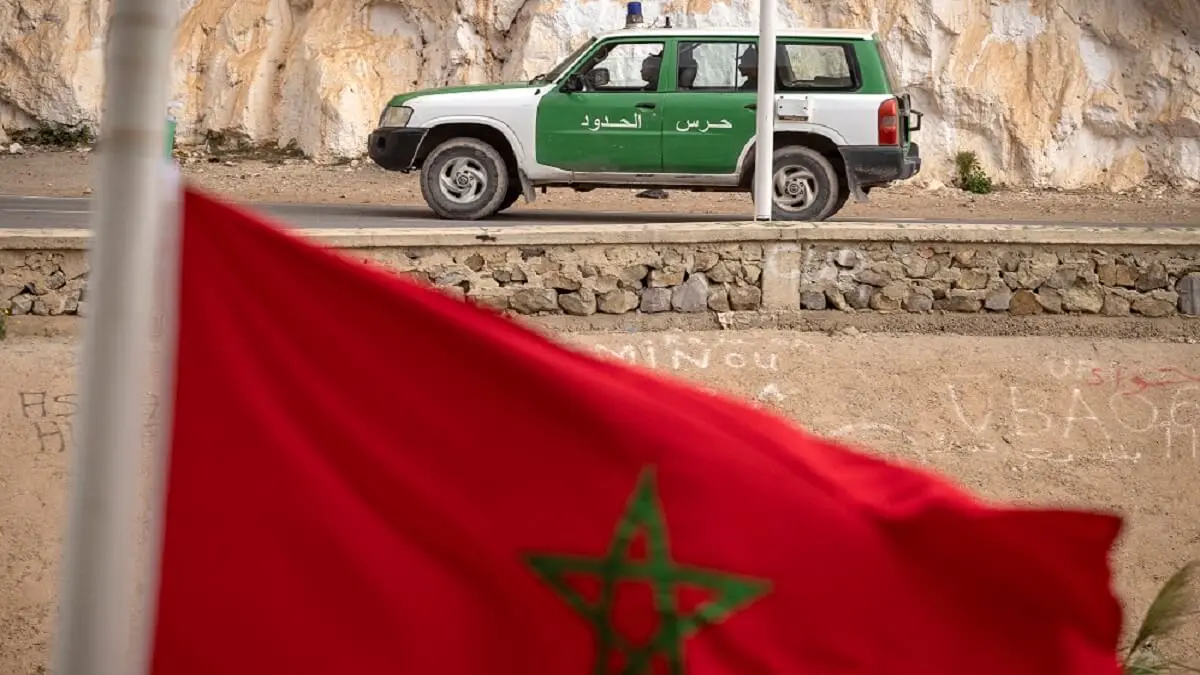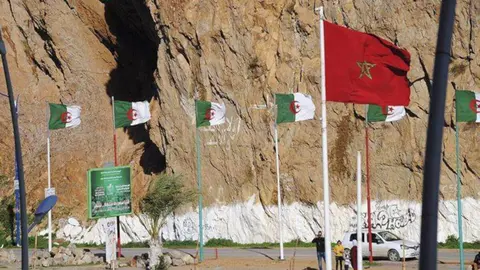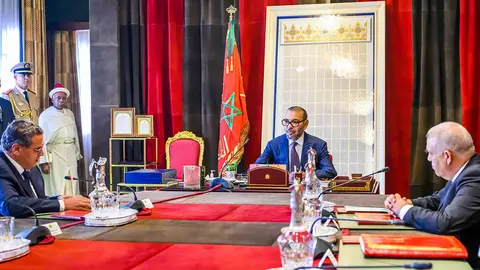Nash principle and the end of Algeria

Speaking of equilibrium, what better to quote here than Nash, who defines it as a situation in which no player finds his or her best game strategy by depending on the opponent's moves; thus, the contenders are only content to satisfy limited objectives.
At the time of the late King Hassan II, the Kingdom of Morocco and Algeria maintained a certain, I would say Nash equilibrium, which depicted a situation where both countries had no incentive to change strategy given their respective capabilities, which at the time were not many; where the geopolitical chessboard was dominated by the Cold War.
Consequently, neither side was optimising its strategy, although each side recognised the outcome of such behaviour and its consequences. A balance sustained essentially by the cooperation that both countries pledged under the umbrella of the UN. Such cooperation ensured the Nash equilibrium that, over time, would turn into an absurd blockade that lasted 30 years and condemned the parties to underdevelopment and poverty.
The enthronement of King Mohammed VI in 1999 overturned the conditions of this equilibrium and led to a dominant strategy with sovereign decisions. Algeria's obstinacy in maintaining a status quo that was as anachronistic as it was harmful no longer mattered.
After several failed attempts to reach out, Morocco opted for progress and autonomy for the Sahara under its sovereignty, regardless of Algeria's drift, which curiously found no incentive to move forward in a world that, by 2003, was evolving rapidly after the fall in 1991 of Algeria's favourite ideology: communism.
Thus, while Algeria entrusted its destiny to the volatility of hydrocarbons, Morocco undertook mega-infrastructures to establish its industrialisation; it implemented cutting-edge technology to enter the value chains of the world's main industries, civil and military aeronautics, automobiles, renewable energies, and a long etcetera. All this through public and private investment, in addition to attracting significant foreign direct investment with the aim of becoming a global production hub.
This progress represented a geo-economic turning point that would boost its geopolitical positioning and a dominant strategic advantage that put an end to the expansionist yearnings of an Algeria that has been thrown off course, dragged down by Rabat's decisions. That is, for every Moroccan action, there is a ridiculous Algerian reaction to blatantly frustrate it, or a "copy and paste" without any sense or originality whatsoever.
At the time, the Algerian military should have heeded King Mohammed VI's offers to collaborate in relaunching the Arab Maghreb Union (AMU) and boosting the North African economy. By playing this game, Algeria would have advanced alongside Morocco without losing its position as a major player; even while maintaining its differences, a new Nash equilibrium would have been re-achieved, but this time at the dominant level, where Algeria would also be enjoying progress and an outlet to the Atlantic for the iron ore resulting from the joint exploitation of the Gara Yebilat mine in Tindouf, agreed in 1962.
However, the Algerian regime opted for the worst, namely closing borders and airspace and, finally, unilaterally breaking off diplomatic relations with Morocco, moving away from any possible cooperation and balance. These decisions have plunged the country into misery, depriving its people of the inalienable right to live in peace and dignity.
Algeria could have been a great nation because of its size and natural resources, but it has settled for being a country of deceitful criminals; it lacks a cultural identity, which it is unable to usurp from Morocco, and a political culture of its own.
Its belligerent discourse hides its collapse; and it dangerously attempts to wage open war, even though it suffers from international isolation due to its disastrous foreign policy and instability due to its internal divisions (feuds and vendettas between clans of different security services). It faces continuous social unrest and uprisings by the population kidnapped in Tindouf, as well as demands for independence from the recently proclaimed Republic of Kabylia and tensions along the southern border with Mauritania and Mali, to the east with Libya and to the west with Morocco.
The outbreak of war will make Algeria explode from within and without due to its political and social weakness, as well as its lack of international relevance. Experts are concerned about its preparedness to confront Morocco and, because of its disastrous diplomatic power, it would not be able to manage the repercussions either. In other words, the war would outstrip its true potential, as well as its illusory self-confidence, and risk ending up like Syria, with NATO tanks in the Moray.
Algeria's military-political power has also shown its unwillingness to cooperate with the UN through the roundtables for fear of being overtaken by expectations of a change for which the country is not ready. Indeed, since its creation (1962), Algeria has never lived in an environment of peace and prosperity, preferring to remain in dark zones, be it the Sands War, ETA, MPAIC, Polisario or Iran and its Hezbollah militia.
Morocco, NATO's privileged partner and guardian of security on the southern flank, never threatens, but executes. If the Algerian military, by mistake or omission, takes the initiative, Morocco, in unison, will not stop until it unseats Algeria's failed terrorist state.
The Kingdom's war potential, both defensive and offensive, far exceeds Algeria's in quality and effectiveness. It has effective and efficient intelligence and highly moralised, qualified and experienced Royal Armed Forces, as well as the unanimous support of a Moroccan population fed up with the antics of the octogenarian duo Chengriha-Tebboune.
Under the leadership of King Mohammed VI, the country made the wise decision to mutate from a mediocre economy to a continental power in just 20 years, thereby acquiring significant soft power. It succeeded in transforming the geopolitical landscape of North Africa by shifting the balance of power in favour of its national cause. A Moroccan success story, backed by its allies and the international community that defends its territorial integrity, peace and security in the region.
The Algerian dictatorship, lagging behind in its drift and immobility, finds itself in an insurmountable dilemma. It does not accept the change of balance, nor does it cooperate to achieve it, and it is barely digesting the achievements of the Kingdom of Morocco, which it calls an "enemy", blaming it for its misfortunes.
Algeria has lacked cooperation, which is essential for any equilibrium, and has had too much arrogance. For these reasons it is suffering serious consequences and will pay dearly for each and every one of the mistakes it has made over the past 50 years, unless it gives up.



